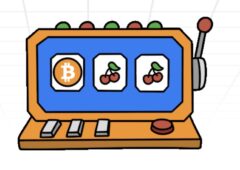Solana Introduces a New Way to Verify Identity
25.05.2025 17:00 1 min. read Alexander Stefanov
Solana has launched a new decentralized identity framework designed to make trust and compliance seamless in the digital economy.
Called the Solana Attestation Service (SAS), the protocol enables secure identity verification across Web3 applications—without sacrificing user privacy.
Built in collaboration with the Solana Foundation and Solana Identity Group, SAS is now live on the network’s mainnet. It provides a flexible infrastructure where off-chain credentials—like KYC status, legal residency, or investor accreditation—can be cryptographically linked to any Solana wallet.
What makes SAS stand out is its focus on portability and privacy. Identity credentials are signed and reusable across multiple apps, but remain off-chain, meaning sensitive user data stays protected while enabling compliance and authentication.
READ MORE:

How Bitcoin Hyper’s Four Technical Pillars Make BTC Practical for Everyday Use And Raised $200,000
SAS also removes the need for centralized gatekeepers. Anyone—from developers to institutions—can integrate it using a simple SDK, creating a neutral and programmable trust layer for decentralized capital markets.
Solana developers say the protocol was created to meet the demands of a growing internet-based financial system, where verifying identity, reputation, or jurisdiction must be scalable, secure, and privacy-preserving.
-
1
Top 10 blockchains by transaction volume in June 2025
06.07.2025 16:00 2 min. read -
2
Ripple Powers UAE’s First Tokenized Real Estate Project via XRPL
16.07.2025 21:00 2 min. read -
3
German State-Owned Development Bank Issues €100 Million Blockchain Bond
11.07.2025 7:00 2 min. read -
4
Tether Ends Support for Five Blockchains in Infrastructure Shift
12.07.2025 11:30 2 min. read -
5
Cardano and Ethereum Lead in Developer Activity as GitHub Commits Surge
14.07.2025 12:00 1 min. read
BNB Chain Upgrades and Token Delistings Reshape Binance Ecosystem
Binance continues to refine its ecosystem in 2025, with major updates spanning performance upgrades, token listings and removals, and new token launches—all reinforcing its focus on scalability and innovation.
Ripple Powers UAE’s First Tokenized Real Estate Project via XRPL
Ripple has taken a major step in expanding its institutional digital asset infrastructure in the Middle East by partnering with Ctrl Alt to support Dubai’s first government-backed real estate tokenization initiative.
Cardano and Ethereum Lead in Developer Activity as GitHub Commits Surge
Recent GitHub data reveals which blockchain ecosystems and individual projects attracted the most developer attention last week—a key signal of long-term project strength.
Tether Ends Support for Five Blockchains in Infrastructure Shift
Tether, the leading issuer of stablecoins, is phasing out support for five older blockchains.
-
1
Top 10 blockchains by transaction volume in June 2025
06.07.2025 16:00 2 min. read -
2
Ripple Powers UAE’s First Tokenized Real Estate Project via XRPL
16.07.2025 21:00 2 min. read -
3
German State-Owned Development Bank Issues €100 Million Blockchain Bond
11.07.2025 7:00 2 min. read -
4
Tether Ends Support for Five Blockchains in Infrastructure Shift
12.07.2025 11:30 2 min. read -
5
Cardano and Ethereum Lead in Developer Activity as GitHub Commits Surge
14.07.2025 12:00 1 min. read

